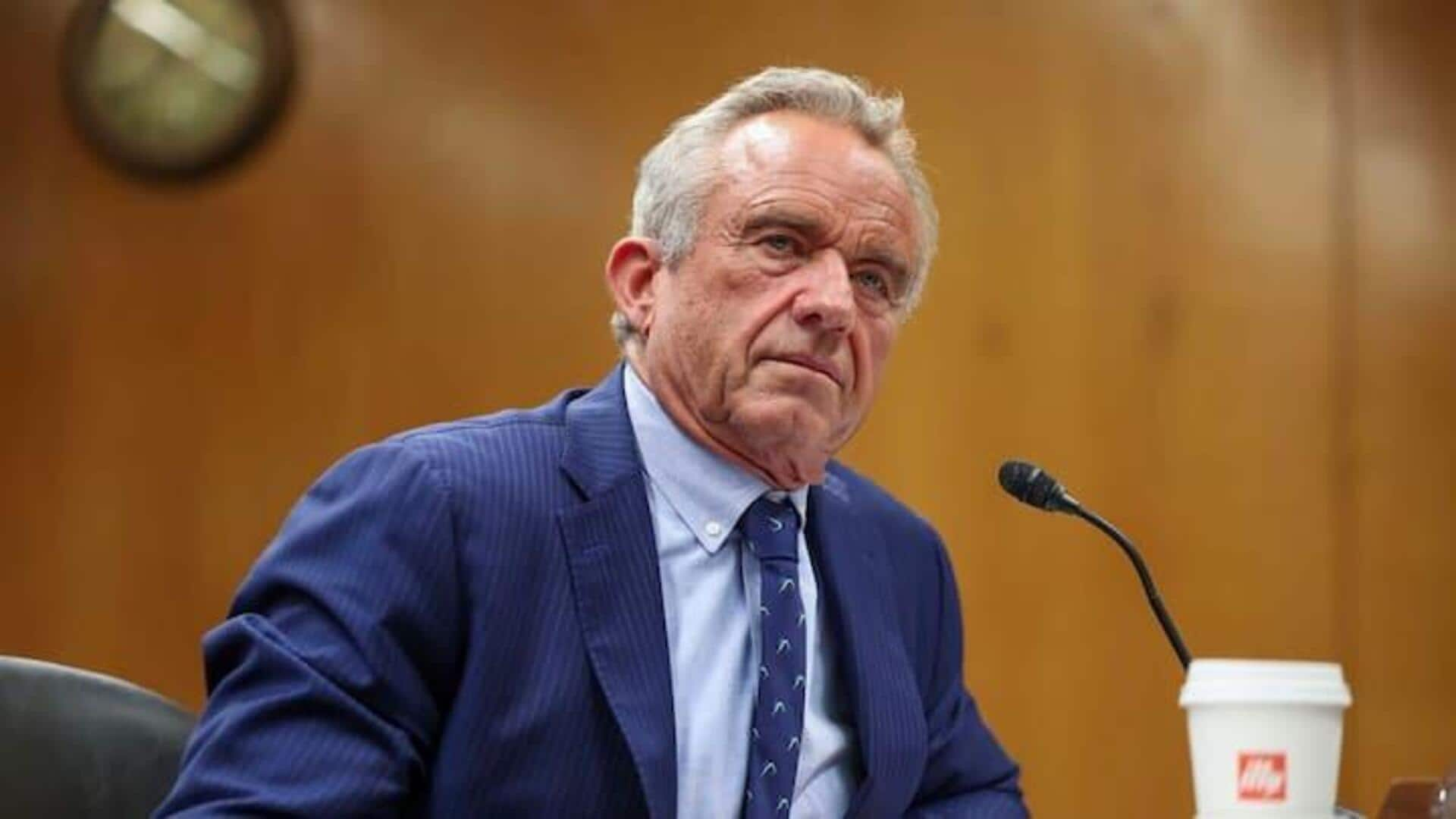
US Health Department's vaccine panel to review children's long-approved jabs
What's the story
United States Health Secretary Robert F Kennedy Jr. has reconstituted the Advisory Committee on Immunization Practices (ACIP), a panel that advises the Centers for Disease Control and Prevention (CDC) on vaccination schedules. The new seven-member panel met for the first time on Wednesday, after Kennedy replaced all 17 previous members. The move has sparked controversy, as some of the new appointees are known vaccine critics.
Panel's focus
New panel to review child vaccination schedules
The new ACIP panel, headed by Dr. Martin Kulldorff, will review long-approved immunization schedules for children and teens. Dr. Kulldorff had previously been fired from his Harvard University professor position for refusing a COVID-19 vaccine. In its first public meeting, he announced that the panel would form working groups to review child vaccination schedules and vaccines approved seven or more years ago, including hepatitis B vaccines for newborns and measles shots.
Vaccines
Learning more about vaccines: Kulldorff
Kulldorff said that the ACIP would launch work groups to reassess the "cumulative effect" of the standard schedule for immunizing children. The groups would also look more closely at how two vaccines are given: the hepatitis B shot that is given at birth and the MMRV combination vaccine, which protects against measles, mumps, rubella, and chickenpox. "Vaccines are not all good or bad. We are learning more about vaccines over time," he said, adding we must "keep up to date."
Vaccine scrutiny
Decision to review older vaccines raises concerns
The decision to review vaccines licensed seven or more years ago has raised eyebrows. Harvard TH Chan School of Public Health epidemiology professor Bill Hanage said it implies a flaw in the approval process. "I cannot think of any rational reason you would look at that and think it to be the case," he said.
Agenda shift
Panel postpones vote on RSV vaccine
Initially, the panel was supposed to vote on recommendations for RSV vaccines. However, that has been postponed. RSV is a common respiratory virus that can cause serious illness, particularly in infants and adults. Since that has been postponed, the group will hear a presentation on thimerosal in vaccines by Lyn Redwood, a former leader of Children's Health Defense, on Thursday. Redwood works in the CDC's vaccine safety office.
Appointment backlash
What the childhood vaccine schedule
The children's vaccine schedule was formally established in the 1960s and 1970s, following the widespread effectiveness of early immunizations such as polio and measles vaccines. As new vaccinations were produced and approved, the CDC began publishing official guidelines to provide consistent protection from preventable diseases. In 1995, the CDC, the AAP, and the American Academy of Family Physicians collaborated to develop an annual recommended immunization schedule for children, outlining the time and dosage for each vaccine from birth to adolescence.